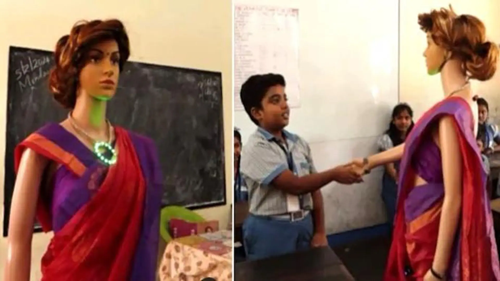The future of education has officially arrived in India. Kerala has achieved a historic milestone by introducing the country’s first Artificial Intelligence (AI) teacher, a humanoid robot named IRIS, at the KTCT Higher Secondary School in Thiruvananthapuram.
Developed in collaboration with Makerlabs Edutech, IRIS represents a significant step forward in integrating Generative AI and robotics into the classroom, promising to redefine the learning experience.
IRIS is designed to perform many functions previously exclusive to human instructors, bringing a high degree of interactivity and personalization to learning:
Multilingual Communication: IRIS can speak and interact in multiple languages (reportedly three), enabling a more inclusive and accessible learning environment.
Intelligent Tutoring: The robot can answer complex, multi-subject questions instantly, allowing students to clear doubts and repeat concepts without the pressure of judgment.
Mobility & Interaction: Equipped with a four-wheel chassis and manipulation capabilities, IRIS can move freely around the classroom and engage in hands-on learning activities.
The technology, built under the Atal Tinkering Lab (ATL) project, aims to make education more engaging and adapt personalized learning journeys based on each student’s needs and pace.
The introduction of IRIS immediately raises a vital question for educators and policymakers: Can AI replace human teachers, or should it serve as a powerful tool to make teaching more effective?
Educational experts generally agree that while AI teachers like IRIS excel at content delivery, personalized drilling, and automated tasks, they cannot replace the human element of teaching:
Human Touch: AI lacks the capacity for empathy, emotional mentorship, and the ability to read complex non-verbal cues that are crucial for student well-being and social development.
Human teachers remain essential for guiding students in developing critical thinking, resolving conflicts, building classroom culture, and instilling ethical values—skills that AI cannot teach effectively.The prevailing view is that IRIS marks the beginning of a symbiotic relationship where AI automates routine tasks (like grading and repetitive explanations), freeing up human teachers to focus on meaningful mentorship, creative lesson planning, and addressing the social and emotional needs of their students. The future of education lies in this powerful partnership.







